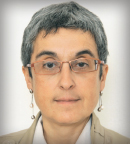Preserving fertility is a driving concern for many young women with breast cancer. Many of these women have hormone receptor–positive breast cancer and are treated with adjuvant endocrine therapy for 5 to 10 years, which is known to compromise fertility. Younger women who may want to take a break from endocrine therapy to pursue pregnancy may find the initial results of the POSITIVE trial reassuring. Presented during the 2022 San Antonio Breast Cancer Symposium,1 these results showed that temporary interruption of endocrine therapy for up to 2 years to attempt pregnancy is safe over short-term follow-up and may result in live births in many cases.
In this international, single-arm trial, at a median follow-up of 41 months, the 3-year rate of breast cancer recurrence was 8.9% among women with hormone receptor–positive breast cancer who chose to interrupt endocrine therapy Almost three-quarters of women who interrupted endocrine therapy had at least one pregnancy, and 86% of those who became pregnant had at least one live birth. A total of 8% of babies were of low birth weight, however, and 2% had birth defects.
“We formally compared our recurrence data from POSITIVE with a selected control group of women from the TEXT/SOFT study of women who would have been eligible for POSITIVE but did not take a break from endocrine therapy for pregnancy,” explained study author Ann H. Partridge, MD, MPH, of Dana-Farber Cancer Institute, Boston. “Our results revealed the outcomes of the two groups did not differ [apparently or statistically],” she added.

“These data [from the POSITIVE trial] will help families, patients, and doctors to pursue pregnancy and interrupt—not stop—endocrine therapy.”— Ann H. Partridge, MD, MPH
Tweet this quote
Olivia Pagani, MD, Study Chair of the International Breast Cancer Study Group, member of the Swiss Group for Clinical Cancer Research, a faculty member at the Universities of Geneva and Lugano, and a member of the European School of Oncology, was a coauthor of this study.
The breast cancer recurrence rate of 8.9% in POSITIVE favorably compared with 9.2% in the SOFT/TEXT trial evaluating adjuvant endocrine therapy. In addition, the distant recurrence rate was 4.5% in POSITIVE and 5.6% in SOFT/TEXT.
“Over the short term, these data stress the need to incorporate patient-centered reproductive health care for young women with breast cancer in the management of breast cancer. These fairly reassuring data will probably encourage more women to try to become pregnant. These data will help families, patients, and doctors to pursue pregnancy and interrupt—not stop—endocrine therapy. This is an important point—interrupt not stop,” Dr. Partridge added.

Olivia Pagani, MD
Dr. Partridge continued: “This will change the way I counsel patients, because prospective data will make us more comfortable supporting patients to pursue this approach, especially for lower-risk patients. The fetal outcomes seem to be similar to those of the general population. Of course, women on this study were mandated to have at least a 3-month washout of their endocrine treatment before trying to conceive.”
Study Findings
POSITIVE is the first international, prospective, single-arm trial designed to answer this question: Is it safe, from a breast cancer relapse perspective, to temporarily interrupt endocrine therapy to attempt pregnancy?
The study enrolled 516 patients at 116 centers across 20 countries on 4 continents. About 60% came from Europe, 23% from North America, and 16% from Asia/Pacific Middle East. Median patient age was 37 years. About 75% had no prior births. A total of 94% of the women had stage 1 or 2 disease, and 62% received chemotherapy. Median time from breast cancer diagnosis to enrollment was 29 months. A total of 26% of participants were unable to become pregnant or did not try. The median time to resume endocrine therapy was 2 years.
“Some women waited to go back on endocrine therapy because they were still trying, in the middle of a pregnancy, nursing, or unwilling to go back on. We plan to follow this long term and report on this further in the future,” Dr. Partridge said.
MORE INFORMATION
For more on the results from the POSITIVE trial on interrupting breast cancer treatment to attempt pregnancy, see a video with Ann H. Partridge, MD, MPH, on The ASCO Post Newsreels at ascopost.com/videos.
Of the 497 women followed for pregnancy, 507 pregnancies were reported in a total of 368 women. Of them, 86% had at least one live birth, 19% had one miscarriage, and 3% had at least one abortion.
To enter the study, women had to have had 18 to 30 months of adjuvant endocrine therapy and then had a 3-month washout period. Then, they were encouraged to try to become pregnant and told to resume endocrine therapy within 2 years. They were followed over time.
At a press conference where these data were presented. Dr. Partridge was asked how the results compared with those in the general population. “The median age of women in our study was 37 [could be up to 42 years], and in the general population, many women are not trying to become pregnant at that age. But these rates of pregnancy are a little lower than those of women going to fertility clinics,” she noted.
DISCLOSURE: Dr. Partridge has received royalties from UpToDate. Dr. Pagani reported no conflicts of interest.
REFERENCE
1. Partridge A, Niman SM, Ruggeri M, et al: Pregnancy outcome and safety of interrupting therapy for women with endocrine responsive breast cancer: Primary results from the POSITIVE trial (IBCSG 48-14/BIG 8-13). 2022 San Antonio Breast Cancer Symposium. Abstract GS4-09. Presented December 9, 2022.


